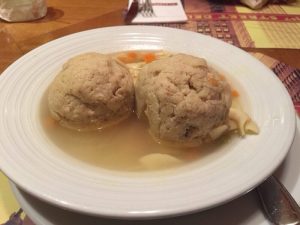Lauderhill Performing Arts Center Ribbon Cutting & Open House (Lauderhill)

* Lauderhill Performing Arts Center Ribbon Cutting & Open House, 3800 Northwest 11th Place, Lauderhill, Florida 33313, (954)-777-2055).
Got something a-little different for you guys…Lauderhill Performing Arts Center Ribbon Cutting & Open House scheduled for Wednesday, January 20, 2016-(4pm).
Jeff Eats and Mrs. Jeff Eats are gonna be there. Can’t wait to tour and learn more about this gorgeous facility.
Now, I wouldn’t be Jeff Eats- would I?- if I didn’t mention that…
1: You can catch up to 4 “free” tickets/info at- lpacfl.com
2: You don’t want to miss the scheduled special performance by THE DOO WOP PROJECT- this music group is an incredible act!!! You can check the group out at thedoowopproject.com.

from lpacfl.com

The City of Lauderhill Officials Welcome All to Attend the Official Ribbon Cutting Ceremony & First Show
LAUDERHILL PERFORMING ARTS CENTER·MONDAY, JANUARY 4, 2016
The City of Lauderhill Officials Welcome All to Attend the Official Ribbon Cutting Ceremony & First Show at The Highly Anticipated Lauderhill Performing Arts Center Opening
The Lauderhill Performing Arts Center (LPAC) will open its doors to the public for the first time on Wednesday, January 20, 2016 at 4:00 PM. All are welcome to attend this event for free.
Lauderhill’s own local talent organizations will be the first to perform in the facility as part of the evening’s line up of exciting events. Performers will include the Lauderhill Steel Ensemble, Ashanti, Jubilee, Encore Performing Arts, Ethnotricity and many more. Guests can also receive guided tours of the facility, witness the Official and Historic Ribbon Cutting Ceremony and enjoy a very special performance by the “DOO WOP PROJECT.”
The DOO WOP PROJECT (DWP) is street corner style singing for a whole new generation! Their show commences at the beginning of Doo Wop from the classic sound of five guys singing tight harmonies on a street corner to the evolution of the biggest hits on the radio today. Throughout the show, DWP takes you on a journey from foundational tunes of groups like the Crests and Belmonts while we experience their influences of greats like Smokey Robinson, the Temptations, and the Four Seasons. Modern day Doo Wop includes Michael Jackson, Bob Marley, Jason Mraz and Amy Winehouse! It is an amazing journey through Doo Wop!
The newly constructed Lauderhill Performing Arts Center (LPAC) is bringing the hottest acts in music, dance, comedy and theatre to sunny Central Broward and the South Florida Community. From the best of Broadway, Concerts, Dance, to a diverse selection of Family-Friendly Productions, this latest addition to the culturally diverse City of Lauderhill is set to offer a variety of shows for everyone in your home.
“The Grand Opening events for the LPAC will be extensive for the months of March and April. I look forward to seeing you all there as we will offer something for everyone,” explains Vice Mayor M. Margaret Bates. The City Sponsored Grand Opening events in their entirety will be announced in upcoming weeks and include concerts, theatrical and dance acts, musical and comedy performances, as well as family shows.
For tickets and information, the LPAC Box Office is open daily, 10 am – 5 pm, Monday – Friday, and Noon – 4 pm, on Saturdays as well as two hours before show time. The LPAC Box Office is located at 3800 NW 11th Place, Lauderhill, FL 33311. You can also call the Lauderhill Performing Arts Center Box Office at (954) 777-2055, or visit our web site at www.lpacfl.com. Tickets for several shows are already on sale.
Tickets for the OFFICIAL RIBBON CUTTING and CONCERT are FREE but should be reserved and picked up aheadof time as there are limited reserved seats. (Limit 4 per person).
The LPAC is located at 3800 NW 11 Place, Lauderhill, FL 33311. It is located on the corner of Sunrise Boulevardand 441, just off of the Sunrise Boulevard exit and the Florida Turnpike.

“The City of Lauderhill is pleased to announce the ribbon cutting ceremony for the Lauderhill Performing Arts Center on January 20, 2016 at 4:00 p.m., featuring a stage-top ribbon cutting by Lauderhill city officials, community group performances, guided tours and a special performance by The Doo Wop Project.”
Location:
The 47, 585 square foot Lauderhill Performing Arts Center is located near the Central Broward Regional Park on the northeast corner of Sunrise Boulevard and State Road 7.
•The address for the PAC: 3800 NW 11th Place, Lauderhill, FL 33313
•The phone number for the Box Office is 954-777-2055
Seating & Theatre:
The Lauderhill Performing Arts Center has a 1143 seat-theater equipped with Proscenium Stage, dressing rooms and state-of-the-art sound and lighting equipment.

Features:
The Lauderhill Performing Arts Center includes an art gallery, meeting/classrooms, banquet/reception facilities, and is a LEED Silver Performing Arts structure. It accommodates events for music, theatre, dance, cinema, visual arts, education, conferences, workshops and other social gatherings.
Funding:
Funding for this facility came from several sources: $5.8 million came from the City of Lauderhill’s voter approved General Obligation bond from 2005. A matching $5.8 million came from the Broward County Park Bond.






























